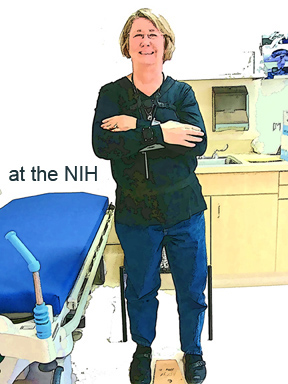What is involved when you join a "scary" new treatment clinical trial? |
||
Often when I approach someone about a new treatment clinical trial, they say, "No way am I going to put some untested stuff in my body!" This reaction is perfectly understandable, but we should never forget that we have the medicines we have today, only because others who came before us assumed the risk of clinical trials. As someone who HAS participated in a new treatment clinical trial, I want to share with you some of the requirements I considered before enrolling, and some of the experiences I actually had during the trial. The list below is not meant to address every issue, but hopefully enlightens you about some of the most important ones. What commonly happens when you are in a new treatment clinical trial?
|
If you think you might want to join a new treatment clinical trial: Research!
So what about my future plans? I am open to participating in a new treatment clinical trial, so I am signed up at Fox Trial Finder. And I follow the latest research. Of course participating in a clinical trial (scary or not) is your decision alone. Make sure your decision is an informed one. download PDPlan4Life's clinical trial brochure (2 files): file 1 &file 2 |
 top top |
 |
email us directly at: Sheryl@pdplan4life.com (c) 2015 PDPlan LLC All Rights Reserved Without express written consent, this material may only be used for your own personal and noncommercial uses which do not harm the reputation of PDPlan LLC, provided that you do not remove any copyright. To request permission to reproduce, please contact PDPlan LLC at Sheryl@pdplan4life.com |
 |
 |



